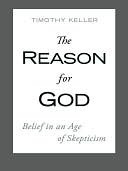More on this book
Community
Kindle Notes & Highlights
Read between
July 17 - August 23, 2018
Pharisaic religion doesn’t just damage the inner soul, it also creates social strife.
Churches that are filled with self-righteous, exclusive, insecure, angry, moralistic people are extremely unattractive. Their public pronouncements are often highly judgmental, while internally such churches experience many bitter conflicts, splits, and divisions. When one of their leaders has a moral lapse, the churches either rationalize it and denounce the leader’s critics, or else they scapegoat him. Millions of people raised in or near these kinds of churches reject Christianity at an early age or in college largely because of their experience. For the rest of their lives, then, they are
...more
There is, then, a great gulf between the understanding that God accepts us because of our efforts and the understanding that God accepts us because of what Jesus has done. Religion operates on the principle “I obey—therefore I am accepted by God.” But the operating principle of the gospel is “I am accepted by God through what Christ has done—therefore I obey.”
The primary difference is that of motivation. In religion, we try to obey the divine standards out of fear.
In the gospel, the motivation is one of gratitude for the blessing we have already received because of Christ.
Another difference has to do with our identity and self-regard. In a religious framework, if you feel you are living up to your chosen religious standards, then you feel superior and disdainful toward those who are not following in the true path.
If you are not living up to your chosen standards, then you will be filled with a loathing toward yourself. You will feel far more guilt than if you had stayed away from God and religion altogether.
The Christian gospel is that I am so flawed that Jesus had to die for me, yet I am so loved and valued and that Jesus was glad to die for me. This leads to deep humility and deep confidence at the same time. It undermines both swaggering and sniveling. I cannot feel superior to anyone, and yet I have nothing to prove to anyone. I do not think more of myself nor less of myself. Instead, I think of myself less. I don’t need to notice myself—how I’m doing, how I’m being regarded—so often.
This gospel identity gives us a new basis for harmonious and just social arrangements. A Christian’s worth and value are not created by excluding anyone, but through the Lord who was excluded for me. His grace both humbles me more deeply than religion can (since I am too flawed to ever save myself through my own effort), yet it also affirms me more powerfully than religion can (since I can be absolutely certain of God’s unconditional acceptance).
The Christian’s identity is not based on the need to be perceived as a good person, but on God’s valuing of you in Christ.
The most liberating act of free, unconditional grace demands that the recipient give up control of his or her life. Is that a contradiction? No, not if you remember the point of Chapters 3 and 9. We are not in control of our lives. We are all living for something and we are controlled by that, the true lord of our lives. If it is not God, it will endlessly oppress us. It is only grace that frees us from the slavery of self that lurks even in the middle of morality and religion. Grace is only a threat to the illusion that we are free, autonomous selves, living life as we choose.
The gospel makes it possible to have such a radically different life. Christians, however, often fail to make use of the resources of the gospel to live the lives they are capable of in Christ. It is critical for anyone reading this book to recognize this fundamental difference between the gospel and religion. Christianity’s basic message differs at root with the assumptions of traditional religion. The founders of every other major religion essentially came as teachers, not as saviors. They came to say: “Do this and you will find the divine.” But Jesus came essentially as a savior rather than
...more
“Why would Jesus have to die?” is a question that I have heard from people in New York far more often than “Does God exist?”


